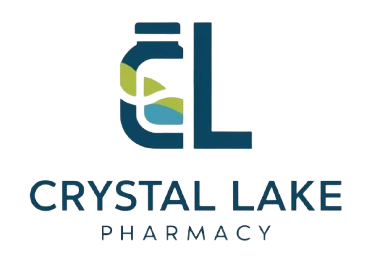Non-dispensing pharmacies are special types of pharmacies that don’t give out medicine directly to patients. Instead, they help make getting medicine easier by working between doctors and regular pharmacies. Think of them as helpful middlemen who solve problems before you pick up your prescription.
In this guide, we’ll cover everything you need to know about non-dispensing pharmacies. You’ll learn what they do, how they help patients, and why they’re becoming more popular in healthcare today.
What Is a Non-Dispensing Pharmacy?
A non-dispensing pharmacy is a licensed pharmacy that doesn’t keep medicine in stock or hand out prescriptions directly to patients. These pharmacies focus on other important pharmacy services instead of traditional dispensing.
Here’s what makes them different:
- They don’t store medicine
- They don’t give medicine to patients
- They help solve insurance problems
- They work with doctors and regular pharmacies
- They focus on making healthcare easier
Non-dispensing pharmacies act like a bridge between your doctor and the pharmacy where you actually pick up your medicine. They handle all the paperwork and problems that might slow down getting your prescription filled.
Types of Non-Dispensing Pharmacy Services
Administrative Services
Non-dispensing pharmacies help with boring but important paperwork:
- Insurance checks – They make sure your insurance will pay for your medicine
- Prior authorization – They get special permission from insurance companies when needed
- Copay programs – They help you find ways to pay less for expensive medicines
- Benefit verification – They check what your insurance covers
Clinical Services
These pharmacies also provide expert medical advice:
- Medication reviews – A pharmacist looks at all your medicines to make sure they work well together
- Therapy management – They help you take your medicine the right way
- Health monitoring – They check how well your medicines are working
- Patient education – They teach you about your medicines and side effects
Technology Services
Many non-dispensing pharmacies use computers to help:
- Electronic prescriptions – They receive prescriptions from doctors electronically
- Patient tracking – They keep track of your prescription progress
- Data analysis – They look at patterns to help improve care
- Communication tools – They help doctors and patients stay connected
How Non-Dispensing Pharmacies Work
The process is simple but effective:
- Your doctor writes a prescription and sends it to the non-dispensing pharmacy
- The pharmacy checks your insurance and handles any problems
- They get approvals from your insurance company if needed
- They find the right dispensing pharmacy that takes your insurance
- They send your prescription to that pharmacy for pickup
- You pick up your medicine from the dispensing pharmacy
This system works because non-dispensing pharmacies are experts at handling insurance problems and paperwork. They solve issues before they become big problems for you.
Benefits of Non-Dispensing Pharmacies
For Patients
Faster service: You get your medicine quicker because problems are solved ahead of time.
Less stress: You don’t have to worry about insurance denials or complicated paperwork.
Better information: You get clear explanations about your medicines and how to take them.
Lower costs: They help you find programs that make expensive medicines more affordable.
For Doctors
Less paperwork: Doctors don’t have to fill out as many insurance forms.
Better workflow: Electronic systems make prescribing easier and faster.
Fewer phone calls: The pharmacy handles insurance problems instead of the doctor’s office.
More time for patients: Doctors can focus on treating patients instead of dealing with insurance.
For Healthcare Systems
Improved safety: Expert pharmacists review medicines to prevent dangerous combinations.
Better outcomes: Patients are more likely to take their medicines correctly.
Cost savings: Fewer emergency room visits and hospital stays.
Efficient care: The whole system works more smoothly.
Non-Dispensing vs Traditional Pharmacies
Traditional Pharmacies
Traditional pharmacies like your local prescription fulfillment pharmacy:
- Keep medicine in stock
- Give medicine directly to patients
- Handle insurance at the counter
- Provide basic counseling
- Focus on dispensing medicines
Non-Dispensing Pharmacies
Non-dispensing pharmacies:
- Don’t keep medicine in stock
- Don’t give medicine to patients
- Handle insurance problems beforehand
- Provide detailed medication management
- Focus on solving problems and improving care
Both types work together to give you the best care possible. The non-dispensing pharmacy handles the complicated stuff behind the scenes, while the traditional pharmacy gives you your medicine when you need it.
Who Uses Non-Dispensing Pharmacies?
Patients with Complex Conditions
People with serious health problems often need expensive medicines that insurance companies don’t want to pay for. Non-dispensing pharmacies help these patients by:
- Fighting insurance denials
- Finding patient assistance programs
- Coordinating with specialty doctors
- Monitoring side effects and drug interactions
Elderly Patients
Older adults often take many medicines at once. Non-dispensing pharmacies help by:
- Reviewing all medicines for safety
- Simplifying medication schedules
- Catching dangerous drug combinations
- Helping with medication therapy management
Patients with Rare Diseases
People with uncommon conditions often need special medicines. Non-dispensing pharmacies help by:
- Finding pharmacies that carry rare medicines
- Working with insurance companies
- Connecting patients with support programs
- Coordinating with specialist doctors
Common Services Provided
Prior Authorization Support
Insurance companies sometimes require special permission before they’ll pay for expensive medicines. This process can take weeks and is very frustrating. Non-dispensing pharmacies:
- Fill out all the paperwork
- Talk to insurance companies
- Appeal denied requests
- Keep you updated on progress
Copay Assistance Programs
Many drug companies offer programs to help patients pay for expensive medicines. Non-dispensing pharmacies:
- Find programs you qualify for
- Help you apply
- Handle the paperwork
- Make sure you get the savings
Medication Therapy Management
This service helps you use your medicines safely and effectively. Pharmacists:
- Review all your medicines
- Look for dangerous combinations
- Suggest ways to save money
- Help you understand side effects
- Work with your doctor to improve your treatment
Patient Education
Non-dispensing pharmacies teach you about your medicines:
- How to take them correctly
- What side effects to watch for
- When to call your doctor
- How to store medicines safely
Licensing and Regulations
Federal Requirements
Non-dispensing pharmacies must follow all federal pharmacy laws, including:
- Having a licensed pharmacist in charge
- Following HIPAA privacy rules
- Keeping accurate records
- Reporting to government agencies
State Requirements
Each state has its own rules for non-dispensing pharmacies. Some states:
- Require special licenses
- Have different rules than regular pharmacies
- Require regular inspections
- Have specific reporting requirements
Professional Standards
Non-dispensing pharmacies must meet high professional standards:
- Pharmacists must be licensed
- Staff must be properly trained
- Quality control systems must be in place
- Patient safety must be the top priority
Technology and Innovation
Electronic Health Records
Non-dispensing pharmacies use computer systems to:
- Share information with doctors
- Track patient progress
- Prevent medication errors
- Improve communication
Artificial Intelligence
Some non-dispensing pharmacies use AI to:
- Predict insurance problems
- Find the best treatment options
- Identify potential side effects
- Improve patient outcomes
Mobile Apps
Many offer smartphone apps that let you:
- Check your prescription status
- Get medicine reminders
- Talk to pharmacists
- Access educational materials
Challenges and Limitations
Regulatory Complexity
Non-dispensing pharmacies face many challenges:
- Different rules in each state
- Changing regulations
- Complex licensing requirements
- Compliance costs
Integration Issues
Working with other healthcare providers can be difficult:
- Different computer systems
- Communication problems
- Workflow conflicts
- Training requirements
Patient Awareness
Many people don’t know about non-dispensing pharmacies:
- Limited public knowledge
- Confusion about services
- Resistance to change
- Need for education
Future of Non-Dispensing Pharmacies
Growing Demand
The need for non-dispensing pharmacies is increasing because:
- Medicines are getting more expensive
- Insurance rules are getting more complex
- Patients want better service
- Healthcare is becoming more specialized
New Technologies
Future developments may include:
- Better artificial intelligence
- Improved mobile apps
- Enhanced data analytics
- More seamless integration
Policy Changes
Government and insurance companies are recognizing the value of non-dispensing pharmacies:
- New payment models
- Expanded coverage
- Reduced regulations
- Better integration with healthcare systems
How to Access Non-Dispensing Pharmacy Services
Ask Your Doctor
Many doctors work with non-dispensing pharmacies. Ask your doctor:
- Do you work with any non-dispensing pharmacies?
- Can you refer me to one?
- Would this help with my prescriptions?
- What are the benefits for my condition?
Check with Your Insurance
Some insurance companies have preferred non-dispensing pharmacies:
- Call your insurance company
- Ask about covered services
- Find out about copay programs
- Learn about prior authorization help
Research Online
You can find non-dispensing pharmacies by:
- Searching online
- Reading reviews
- Checking credentials
- Comparing services
Ask Other Patients
People with similar conditions may have experience with non-dispensing pharmacies:
- Join support groups
- Ask on social media
- Talk to friends and family
- Get recommendations from patient organizations
Cost Considerations
Services Often Covered
Many non-dispensing pharmacy services are covered by insurance:
- Medication therapy management
- Clinical consultations
- Disease management programs
- Preventive care services
Out-of-Pocket Costs
Some services may require payment:
- Specialized consultations
- Advanced monitoring
- Concierge services
- Premium programs
Potential Savings
Non-dispensing pharmacies can help you save money by:
- Finding copay assistance programs
- Preventing expensive medical problems
- Reducing hospital visits
- Improving medication adherence
Frequently Asked Questions
Do I still need a regular pharmacy?
Yes, you’ll still need a regular pharmacy to actually pick up your medicines. Non-dispensing pharmacies work with regular pharmacies to make the whole process easier.
Will my insurance cover these services?
Many insurance plans cover non-dispensing pharmacy services, especially medication therapy management. Check with your insurance company to see what’s covered.
How do I know if I need these services?
You might benefit from non-dispensing pharmacy services if you:
- Take multiple medicines
- Have complex health conditions
- Have trouble with insurance approvals
- Want better medication management
Are these services safe?
Yes, non-dispensing pharmacies are licensed and regulated just like regular pharmacies. The pharmacists are licensed professionals who follow strict safety standards.
How much do these services cost?
Costs vary depending on the services you need and your insurance coverage. Many basic services are covered by insurance, while specialized services may have out-of-pocket costs.
Final Thoughts
Non-dispensing pharmacies are changing healthcare for the better. They solve problems before they happen, make getting medicine easier, and help patients take better care of themselves. While they don’t replace your regular pharmacy, they work behind the scenes to make your healthcare experience smoother and more effective.
If you’re dealing with complex health conditions, expensive medicines, or insurance problems, a non-dispensing pharmacy might be able to help. Talk to your doctor or contact your local pharmacy to learn more about these valuable services.
Remember, the goal of non-dispensing pharmacies is simple: to help you get the right medicine at the right time with less stress and better outcomes. As healthcare continues to evolve, these specialized pharmacies will play an increasingly important role in keeping patients healthy and improving the quality of care for everyone.
Ready to improve your medication management? Contact Crystal Lake Pharmacy today to learn more about our comprehensive pharmacy services and how we can help make your healthcare journey easier and more effective.

